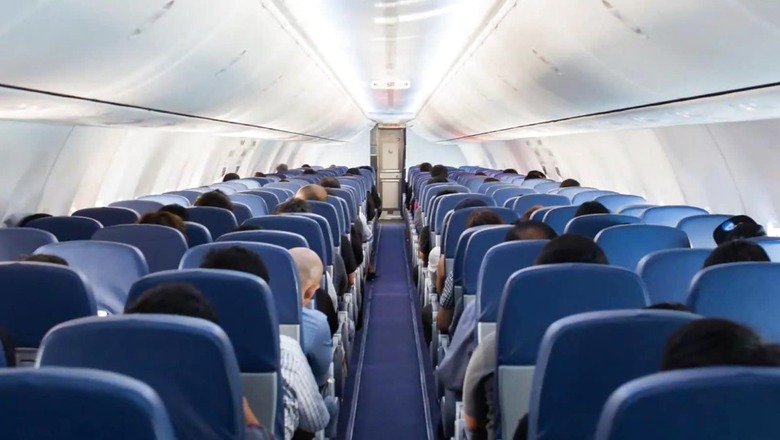'Use Restraining Devices, Lodge FIR': DGCA Issues Advisory to Airlines on Handling Unruly Passengers

views
The Directorate General of Civil Aviation (DGCA) on Friday issued an advisory to the head of operations of all scheduled airlines including the usage of restraining devices and lodging FIRs with regard to handling unruly passengers on board after incidents of drunk passengers allegedly urinating on female passengers sparked outrage.
DGCA issues an advisory to Head of Operations of all Scheduled Airlines with regard to handling unruly passengers on board and respective responsibilities as per the regulations. pic.twitter.com/b84yD3ya4u— ANI (@ANI) January 6, 2023
“In the recent past, DGCA has noticed a few incidents of unruly behaviour and inappropriate conduct by the passengers on board the aircraft during flight, wherein it observed that post holders, pilots and cabin crew members have failed to take appropriate actions,” the statement read.
The advisory came after an inebriated man allegedly urinated on his female co-passenger, a senior citizen in her seventies, in the business class of an Air India New York-Delhi flight on November 26. After the incident was reported, triggering shockwaves, a similar incident on board another Air India flight was recorded in which a drunk passenger allegedly urinated on the blanket of a female passenger on the airline’s Paris-New Delhi sector in December.
Both the incidents on Air India flights was not reported to the DGCA. The regulator has pulled up the full-service carrier, stating its conduct was unprofessional and issued show cause notices to the airline, its director in-flight services and the crew that operated the New York-Delhi flight, asking them to explain within two weeks why action should not be taken against them.
DGCA in its recent advisory noted that “non-action/inappropriate action/omission by the airlines” after the incidents have “tarnished the image of air travel in different segments of society.”
Reiterating the provisions for handling unruly passenger under Aircraft Rules 1937, DGCA regulations, circulars and manuals approved by the DGCA, it said, the pilot in command is responsible for the safety of the passengers.
“Para 4.11 of the CAR Section 3, Series M, Part VI makes the pilot in command responsible for assessing the situation quickly if the cabin crew can control the situation and relay the information to the airline’s central control on the ground for further action. In addition, para 4.13 of the said CAR mandates that upon the landing of the aircraft, the airline representative shall lodge an FIR with the concerned security at aerodrome, to whom, the unruly passenger shall be handed over,” the regulator said citing responsibility of pilots.
The Cabin crew in situations where it becomes clear that there is no way to resolve it through verbal communication and written notice, should apply “restraining devices.” It further stated that CAR makes cabin crew responsible for informing the passenger of the repercussion and consequences of such unruly behaviour.
The nodal officer or the Director-in-flight Services is also responsible for reporting such incidents to DGCA, it read.
According to the guidelines, any non-compliance towards applicable regulations will be dealt with strictly and invite enforcement action, PTI reported. Under the norms, if an airline finds a passenger’s behaviour unruly, the pilot-in-command has to file a complaint, which is to be investigated by an internal panel. During the probe, the airline can ban the flyer for a maximum of 30 days. The committee has to decide on the matter within 30 days and specify how long the flyer can be kept from travelling, it stated.
Report All Incidents Irrespective of Settlement: Air India CEO
Air India CEO Campbell Wilson in an internal communication to employees on Friday said, “The repulsion felt by the affected passenger is totally understandable and we share her distress.” Amid questions regarding why the airline did not immediately reporting the unruly passenger to law enforcement authorities, he advised staff to report all incidents irrespective of a settlement being reached.
“Whilst the story is more complicated than has been reported, there are clearly some lessons we can and must learn. Most importantly is that, if an incident on our aircraft involves improper behaviour of such magnitude, we must report it to authorities at the earliest opportunity, even if we genuinely believe that the matter has been settled between the parties involved,” he wrote.
Read all the Latest India News here




















Comments
0 comment